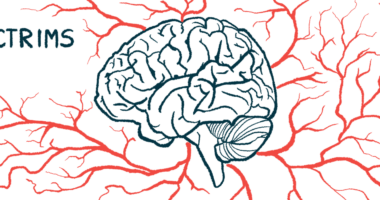Disease Severity, Brain Changes Linked to Cognitive Decline

Disease severity, brain volume loss, and brain lesions are able to predict later cognitive declines in people with relapsing-remitting multiple sclerosis (RRMS), a study in China found.
The study, “Clinical and MRI predictors of cognitive decline in patients with relapsing-remitting multiple sclerosis: a 2-year longitudinal study,” was published in Multiple Sclerosis and Related Disorders.
Brain tissue changes, including volume loss and lesions, which can be assessed with an MRI, are an established way to predict or monitor MS disease progression, particularly worsening motor symptoms.
More than half of MS patients also experience cognitive problems, including issues with learning, problem-solving, and planning, but the relationship between brain tissue changes and later cognitive decline has not been thoroughly established.
A team of researchers monitored cognitive and MRI changes in 107 RRMS patients and 74 healthy participants, who served as a control group, over two years.
Among the patients, the average disease duration was 12 years. The disease attack rate at the study’s start was one per year in 39 people, two per year in 43 people, and three per year in the remaining 25 patients.
RRMS patients showed several MRI changes compared with the control group at the study’s start. Specifically, patients had a lower total brain volume, as well as less white and gray matter. White matter is brain tissue that contains mostly nerve cell projections, while gray matter is made up largely of nerve cell bodies.
Cognitive function tests showed that patients also had impairments in cognition compared with healthy controls.
Specifically, they had poorer verbal memory, visual memory, and visuospatial perception, or the ability to perceive an object’s location relative to one’s own body. Patients also showed deficits in executive function, which encompasses a set of skills such as working memory, flexible thinking, and self-control that help in everyday life. Information processing speed was similar in both groups, however.
After two years, 38 patients were considered to have experienced cognitive decline from their baseline performance, while 69 were considered cognitively stable. Patients who had a longer disease duration, worse disease-associated disability, and more disease attacks per year at the study’s start were more likely to experience cognitive decline. All the healthy participants were cognitively stable.
Several MRI measurements were also associated with cognitive performance.
In particular, lower total brain volume at the study’s start was associated with cognitive decline, as was a lower volume in the brain’s frontal lobe — involved in complex cognitive functions — and the temporal lobe, which plays a known role in memory.
Lower baseline levels of total gray matter, and gray matter in several individual brain regions, including the cortex, hippocampus, and thalamus also predicted cognitive loss. Similarly, more of the brain’s white matter containing lesions at the study’s start was associated with worse cognitive function.”
The results highlight clinical and MRI parameters that may be useful predictors of cognitive outcomes in MS patients.
The study did not examine how MS treatments might have influenced cognitive or MRI findings during the study, nor did it account for disease attacks during the two-year follow-up, the research team pointed out. Nevertheless, the researchers said their “findings suggest that RRMS patients with more disease severity, higher [gray matter] atrophy, and increased [white matter] lesion volume are more susceptible to cognitive decline.”
Future studies should seek to address the longer-term relationships between cognition and MRI parameters, and to better understand what causes brain atrophy to lead to impaired cognition, the researchers said.







